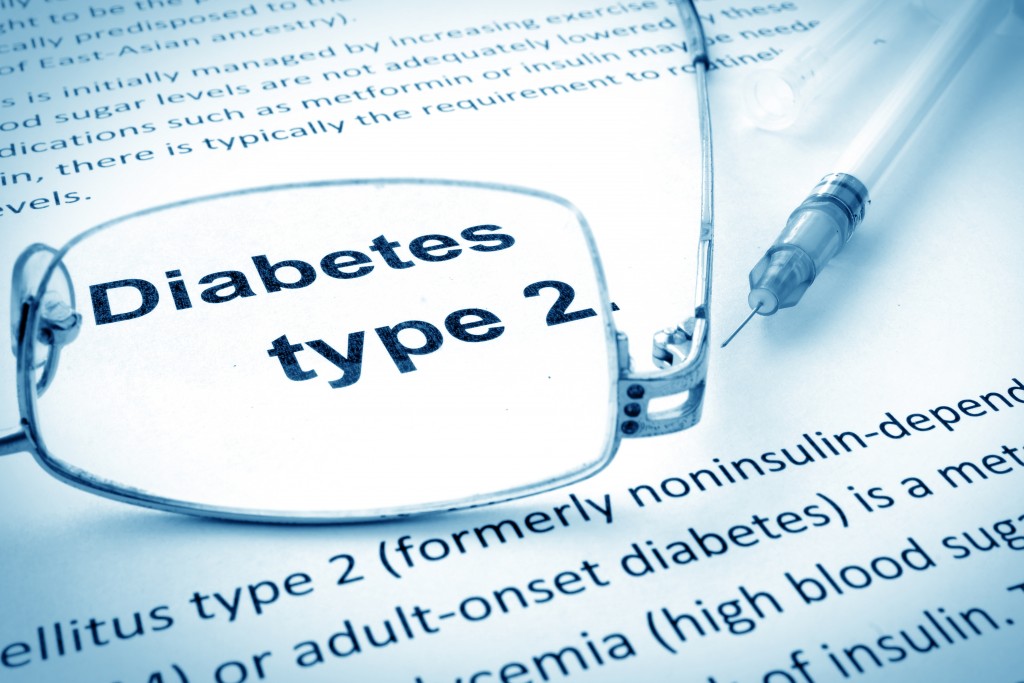Do you often find yourself skimping on breakfast, skipping proteins, snacking on beautifully glazed donuts in the middle of the night? If your answer is yes, then there’s a great chance that you are putting yourself at risk for type 2 diabetes.
Over 32 million Americans suffer this lifelong disease. Type 2 diabetes is defined as the unhealthy rise of blood sugar levels in the body. Without proper maintenance, type 2 diabetes can spawn a wide range of serious health complications such as brain damage, vision impairment, kidney disease, hearing loss, and nerve damage. A combination of reasons can cause type 2 diabetes, but poor lifestyle habits mainly cause it.
If you are not careful with the choices you make regularly, you might end up developing this lifetime ailment. So, here are four habits that may leave you vulnerable to type 2 diabetes:
Missing the ‘Most Important Meal of the Day’
If you have a habit of eating your breakfast at 11 a.m. or 1 p.m, then it’s time to make some changes. Studies show that delaying your morning meal can increase your risk for type 2 diabetes by 55%. How is that possible? When you skip your first meal of the day, your body secretes more glucose into the bloodstream as it scrambles to find a source of energy. High levels of sugar circulating in the blood will set you up for type 2 diabetes.
Aside from that, if you think skimping on your breakfast can help you shed a few pounds, you’re wrong about that. It leads to a blood sugar spike, making you want to stuff more biscuits and cream puffs into your mouth later in the day. Plus, not adhering to a proper meal schedule can take a toll on your body. You are more prone to experiencing fatigue since your body can’t provide the right energy it needs to function correctly.
Loading Up on Excessive Amounts of Carbs

Consuming large portions of carbohydrates every mealtime can lead to the development of type 2 diabetes. The carbs you eat are broken down into sugar and enter the bloodstream. That results in an unhealthy spike in glucose levels. If you constantly indulge in high-carb food, your pancreas will work overtime to produce the amount of insulin you need to keep your glucose in a state of balance. As much as possible, curb your carb intake to avoid destabilizing your blood sugar levels. While spaghetti Aglio e olio, truffle pizza, and glazed donuts are to die for, you have to learn how to put a lid on your cravings.
If you want to reduce the chances of developing type 2 diabetes, adopt a low-carb, high-fat diet or ketogenic diet. In a ketogenic diet, your body makes use of fatty acid substances called ketones as its primary energy source, which is good because you no longer have to rely on glucose from carbs to keep you up and running. Don’t worry because many keto-friendly snacks to buy are as tasty as high-carb food. These keto treats will not only satisfy your hunger but will also provide you with the nutritional value you need.
Indulging in Sweetened Drinks
Did you know that most type 2 diabetes is caused by excessive consumption of sweetened beverages? That’s because these drinks contain large amounts of sugar. A 12-ounce bottle of soft drinks has 37 grams of sugar. What more if you finish three Coke bottles every day, right? If you don’t want to be strapped to a lifetime medical condition such as diabetes, then stay away from sweetened drinks. They don’t have nutritional value whatsoever and only pose risks to your health. If you want a healthier alternative, you can enjoy at least half a glass of fresh fruit juice every day. The trick is to maintain the right amount of sugar in your body. To be safe, you can stick with water. It helps you quench your thirst and eliminate toxins from your body all at the same time.
Not Getting Enough Shut-Eye
Believe it or not, depriving yourself of a goodnight’s sleep can result in type 2 diabetes. Sleep deprivation disrupts your hormone levels, and this includes your insulin, which is in charge of controlling your glucose. Without enough shut-eye, your body releases decreased amounts of insulin and increased levels of stress hormones. While they keep you awake, these stress hormones prevent your insulin from performing its job of regulating your sugar levels. And we all know that excessive amount of sugar floating in your bloodstream is a risk for type 2 diabetes.
Aside from that, poor sleeping habits can throw off your ghrelin and leptin, hormones in charge of regulating your appetite and satiety. When you’re sleep-deprived, you’ll end up suffering from intense cravings and eating high-carb foods, which will result in a catastrophic sugar surge. It’s best to get in seven to nine hours of sleep to keep your body correctly functioning and avoid leaving yourself vulnerable to diseases.
So, if you want to avoid being tied to a life-long medical condition like type 2 diabetes, you have to make better lifestyle choices. As early as now, make your health your number one priority.

